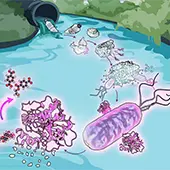
October 03, 2024
Bacteria in wastewater could play a key role in breaking down plastics that pollute the environment, new study finds
|
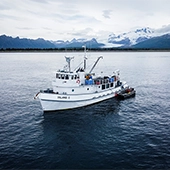
August 09, 2024
Northwestern students tackle plastic pollution on Alaska’s remote beaches, clearing a total of 15,000 pounds of marine debris
|
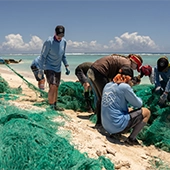
July 18, 2024
Prof. Kyoo-Chul Kenneth Park has been awarded the Illinois-Indiana SeaGrant for $2.4M to address the challenge of removing microplastics from aquatic ecosystems and drinking water
|

December 14, 2023
Addressing the global plastic crisis is the focus of research for Northwestern's Linda Broadbelt, who works to capture value from and improve recyclability of existing plastics
|
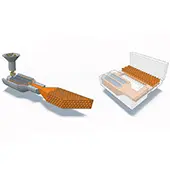
August 29, 2023
Researchers discover how to dismantle and rebuild a common form of polyurethane
|
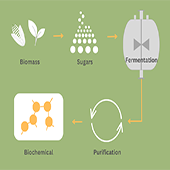
March 13, 2023
New Life-Cycle Assessment research evaluates greenhouse gas emission and environmental impact of 15 promising biochemicals
|
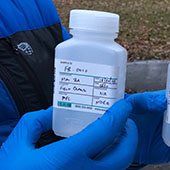
August 18, 2022
Process beheads PFAS, causing it to fall apart into benign end products
|
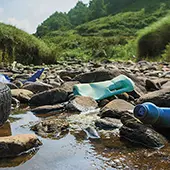
June 03, 2022
Northwestern researchers seek solutions to the plastics pollution dilemma with new ideas on polymer design and upcycling
|
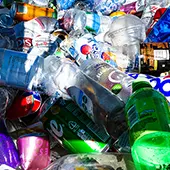
March 24, 2022
Called plastic upcycling, efficient use of the chemistry has implications from bioremediation to medicine
|

March 08, 2022
Researchers pioneer innovative chemistry-based solutions, transform complex materials like tires and plastics into recyclable resources, addressing sustainability challenges and unlocking latent energy
|

January 12, 2022
Water dynamics can trap lightweight microplastics that otherwise might float
|

December 06, 2021
U.S. Department of Energy supports joint research by Northwestern and BASF to promote plastics circularity, recyclability
|

November 18, 2021
Team from government, academia and industry unites to identify new opportunities to reduce the environmental impact of polyurethane — one of the most widely used but little recycled plastics
|
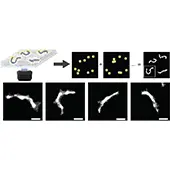
October 11, 2021
A team of investigators from McCormick School of Engineering are among the first to directly image individual polymers in a bulk polymer environment
|
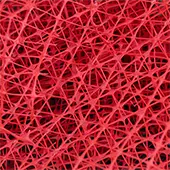
June 24, 2021
Not all plastics and polymers can be easily recycled so researchers are trying to create new materials with similar properties, can be reprocessed sustainably
|
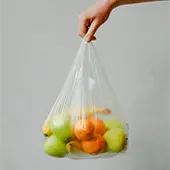
May 06, 2021
Kellogg School of Management and Trienens Institute hosted a virtual panel discussion on the sustainable use of plastics in food retail
|
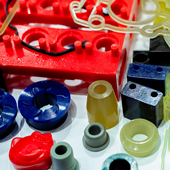
March 22, 2021
Engineers demonstrate new approach to chemical catalysis resulting in high propylene yields using less energy, energy-efficient production processes for plastics
|
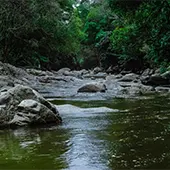
February 25, 2021
Jen Drummond (McCormick Ph.D. ’15) presented research findings about the impacts of microplastic pollution in rivers and freshwater ecosystems
|
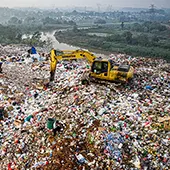
January 22, 2021
Plastics have become a significant material in many sectors but have contributed to a detrimental amount of environmental degradation
|

August 17, 2020
Around 300 million tons of plastic waste is produced globally each year—most of that plastic ends up in landfills or the environment
|

May 18, 2020
In 2015, the state of Alabama paid approximately $32 million to bury 711,436 tons of recyclable materials from its residents in landfills
|
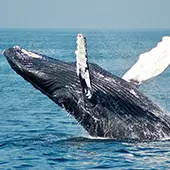
April 20, 2020
Northwestern researcher takes inspiration from baleen whales for microplastics removal and environmental remediation
|

February 10, 2020
U.S. Department of Energy supports joint research from Northwestern, Argonne National Laboratory, and industry partners
|
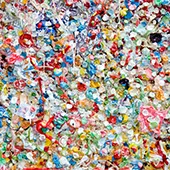
July 09, 2019
Approximately eight million metric tons of plastic pollution enter the ocean each year--by 2050, the amount of plastic is expected to exceed fish in the ocean by mass
|
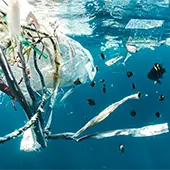
July 01, 2019
Of the 8.3 billion metric tons of plastics generated since 1950, 79 percent of it has ended up in landfills and ecosystems
|
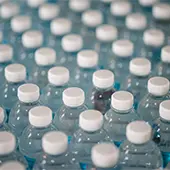
May 07, 2019
Approximately half of all plastic that is produced is designed to be used only once and then thrown away
|
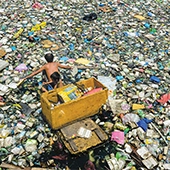
April 09, 2019
Network of researchers from academic, civic, government, and industrial institutions convene to focus on plastic waste impacts and solutions
|


























